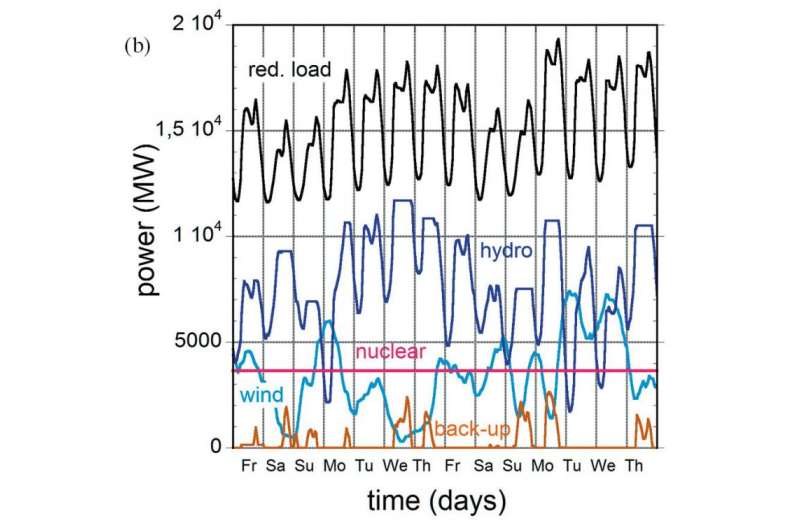Replacing nuclear power with wind power doesn't make sense in Sweden, study shows

The Swedish power supply is largely free of carbon emissions. Indeed, it is mainly based on a combination of hydroelectric and nuclear power combined with power exchange with neighbouring Scandinavian countries.
A study published in EPJ Plus investigates the possibility of replacing nuclear power with wind power, which is by nature intermittent. According to the study, this, in turn, would finally lead to a reduction in the use of hydroelectricity if the annual consumption remained constant. The authors of the study conclude that a backup system, based on fossil fuel, namely gas, would be required in combination with wind power. In such a scenario, the CO2 emissions would double. Fritz Wagner from the Max Planck Institute for Plasmaphysics, Greifswald, Germany, and Elisabeth Rachlew from the Royal Institute of Technology, Stockholm, Sweden, therefore conclude that it would not be a viable option.
The study is based on data from 2013 pertaining to the load and the various power supply sources in Sweden. To represent constantly available wind power, the original 2013 data has been corrected for the increase in wind power during the year. The authors investigate the extent to which the required capacity of the installed wind power together with hydroelectricity reduce the nuclear share of their overall power generation. They also look into whether a backup system is necessary and at what power capacity.
Going a step further, they also examine the dynamics of its operation to determine the type of system required for back-up. In addition, they analyse the amount of surplus produced when the wind contribution is in excess of the reduced load, and whether the surplus energy can be stored to supplement the back-up power supply. Finally, they look at whether the operational conditions for hydroelectricity are acceptable. They conclude that this scenario would double the specific CO2 emissions, which would not make sense.
More information: F. Wagner et al. Study on a hypothetical replacement of nuclear electricity by wind power in Sweden, The European Physical Journal Plus (2016). DOI: 10.1140/epjp/i2016-16173-8
Provided by Inderscience Publishers



















